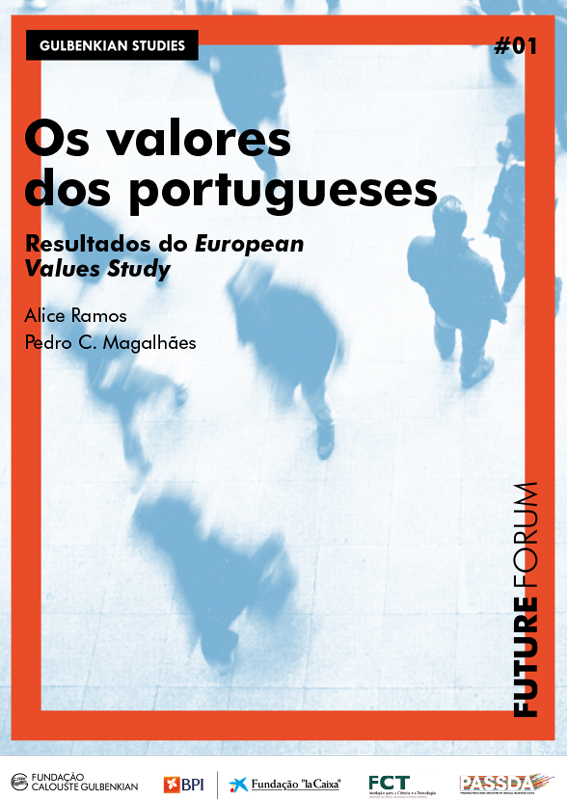European Values Study: what are the values of the Portuguese

From across the six spheres of life – employment, family, leisure, friends, politics and religion – which are the most important to the Portuguese? Do men and women share the same working rights? And which gender produces the best political leaders? What are the most important qualities for children to learn at home? And what is the stance of Portuguese citizens towards euthanasia and suicide? Have Portuguese citizens become more or less tolerant in relation to tax evasion?
Which neighbours would Portuguese citizens prefer to have and which would they reject: people of a Roma ethnic background, alcoholics or drug addicts? And what is their position towards immigrants? And what do Portuguese citizens think about democracy? And other types of political regime?
The responses to these and other questions about the Family, the roles of Gender, Ethics and Morality, Civic Culture, Social Distance, Immigration and Democracy, included in the European Values Study (2017-2020) is undergoing presentation on Monday 14 June, in an online session broadcast from the Calouste Gulbenkian Foundation.
Main conclusions of the Study
Family and Gender Roles
Among the six spheres of life (employment, family, leisure, friends, politics and religion), family stands out at the most important to 88% of Portuguese respondents.
Marriage remains an institution highly valued by the majority of respondents: only 25% in Portugal consider that marriage is “an outdated institution”. The factors determinant to the success of marriages (or de facto unions) are fidelity, highly important to 85% of those inquired followed by the existence of children and an appropriate level of earnings (both with 59%).
Almost one of half of respondents (43%) agree or fully agree that “women work but what the majority of women really want is a home and children”. This is not a predominantly male depiction given that the differences in answers to this question between the genders do not obtain statistical significance.
As regards the consequences of women undertaking paid labour on the wellbeing of children, the trend is similar: 46% agree or totally agree that “when women have a professional activity, the children are harmed”. This opinion is shared by men and women.
Nevertheless, 18% consider that “when employment is scarce, men have more rights to work than women”; 17% agree that “men make better political leaders than women”, a level clearly below the European average (30%); and, for 11% of respondents, “having a higher education degree is more important to males than to females”.
Ethics and morality
According to the survey respondents in Portugal, the most important qualities that children may learn at home is ‘having good manners and ‘developing a sense of responsibility’. The least important turn out to be ‘having imagination’ and ‘having religious faith’.
In comparison with 1990, there is now greater importance paid to ‘being independent’ and ‘showing perseverance’, with a lower level of importance attributed to ‘being obedient’.
As regards the set of questions on life and death, since 1990 there has been a trend towards greater openness to euthanasia while retaining a strong level of condemnation of suicide. The attitude towards abortion has been stable over the years since 1990 with values below the average point on the scale.
Civic Culture
Over the course of the last three decades, the Portuguese have declared themselves to be less tolerant in relation to behaviours such as tax evasion, claiming benefits to which they have no right, accepting bribes and even to the non-payment of tickets on public transport.
However, in other more indirect aspects to that which we may refer to as “civic culture”, the changes are far less visible. Portuguese citizens continue to rank among the European populations with the lowest levels of trust in their fellow citizens as well as being among those who get least involved in voluntary activities.
Social Distance and Opposition to Immigration
Who would Portuguese citizens least like to have as their neighbours? Out of a set of eight different groups, there are three that stand out for the highest levels of rejection: members of the Roma community (59%), alcoholics (62%) and drug addicts (64%), with the last two receiving the highest levels of rejection across all participant countries.
Immigrant workers and persons perceived as belonging to other races are those raising the least opposition as neighbours with these two groups receiving negative responses from 13% of survey participants.
As regards immigrants, Portugal has displayed a growing level of openness to their presence and their importance to national development even while there remains a significant proportion of respondents who think that immigrants ‘take jobs away from national citizens’, ‘contribute to rises in crime’ and ‘are a weight on the social security system’.
In Portugal, immigration is perceived as a “good” or “very good” factor for the development of the country by 49% of respondents in Portugal; with those who consider immigration as bad or very bad representing 14% of respondents.
Democracy
According to 86% of those surveyed “having a democratic political system” is a good or a very good way of governing countries.
This opinion is accompanied by the rejection of other types of political regime: “strong men” autocracies (“Having a strong leader who does not have to bother about either parliament or elections”) is a bad or very bad way to run countries according to 37%; technocracies (“There should be specialists and not governing politicians taking decisions according to what they consider the best for the country”) is bad or very bad for 28%; while military dictatorships (“Having the armed forces govern the country”) is bad or very bad to 66%.
About the European Values Study
The European Values Study (EVS) is one of the oldest comparative and longitudinal studies on attitudes and values taking place in Europe. The first edition dates back to 1981 and then counting on the participation of ten European countries. This number has progressively expanded ever since, rising to 27 states in 1990, 33 in 1999 and 47 in 2008. In the fifth round of EVS (2017-2020), which produced the results presented here, a total of 34 countries participated.
The EVS data are open access and have been fed into countless publications, whether of an academic type or of a more generalist nature, which may be consulted on the EVS-Publication webpage.
Portugal has been participating in the EVS ever since 1990. The 2017-2021 edition counted on financial support from the Calouste Gulbenkian Foundation, the La Caixa Foundation and the Portuguese Foundation for Science and Technology. The EVS is integrated into the Social Attitudes of the Portuguese program, one of the components of the PASSDA (Production and Archive of Social Science Data) infrastructure, a consortium included in the National Guide to Infrastructures of the Foundation for Science and Technology led by the Institute of Social Science at the University of Lisbon.
The field work was carried out by GfK-Metris, between 11 January and 31 March 2020. Out of an initial sample of 3,032 households, a total of 1,215 interviews took place representing a response rate of 41% and a sample error of ± 2.8% for a confidence interval of 95%.
PUBLICATIONS

Os valores dos portugueses
Resultados do European Values Study

European Values Study
Relatório do Estudo dos Valores Europeus, 2017-2019
